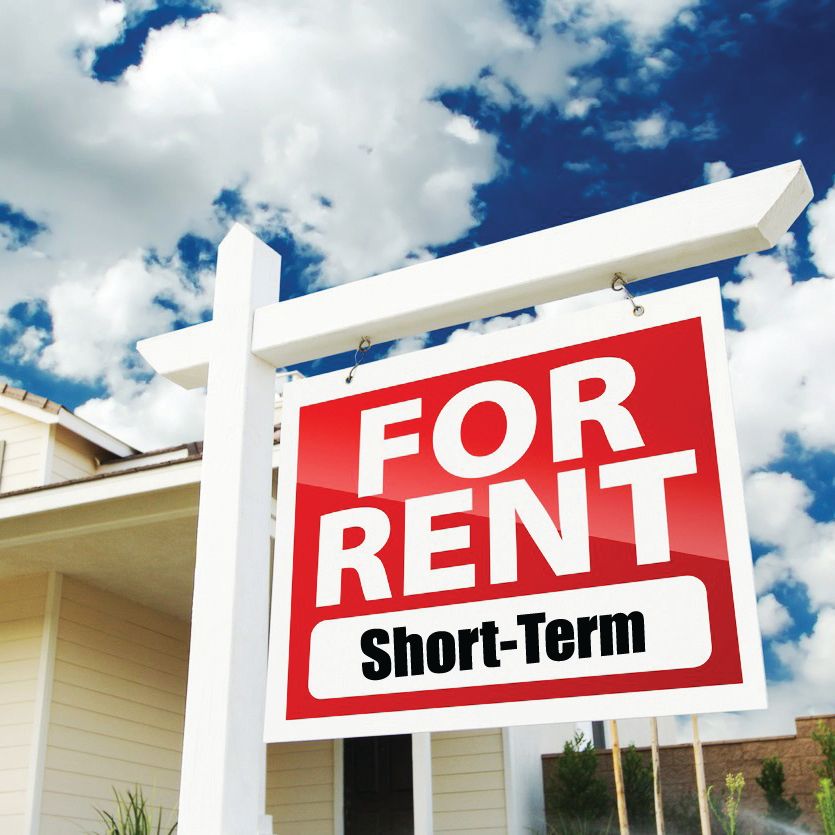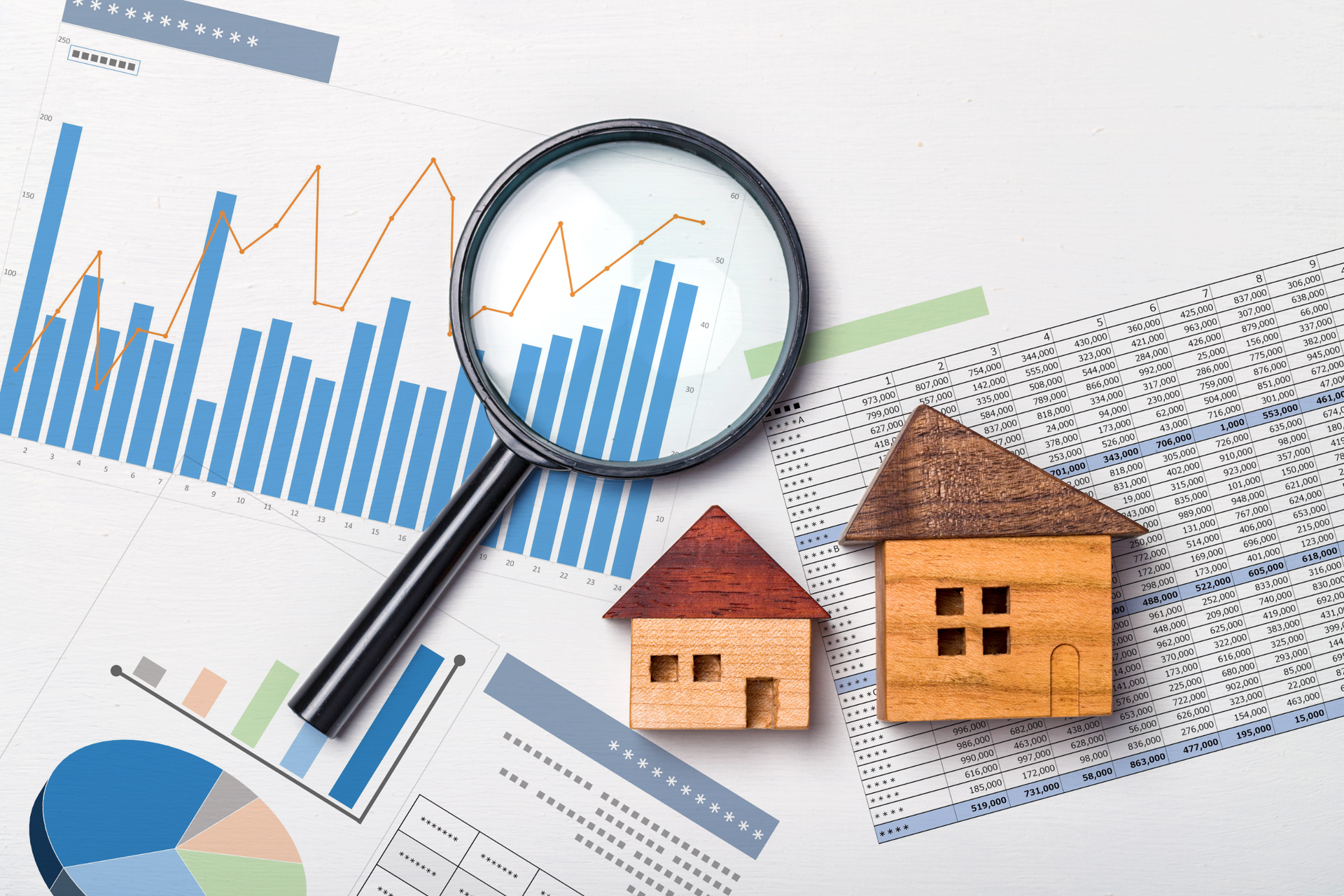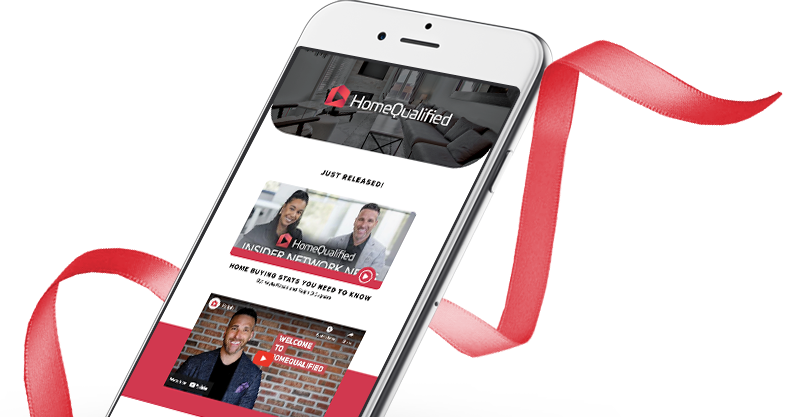YOUR TRUSTED
REAL ESTATE RESOURCE
We curate education on the latest and most common real estate topics for the buyers, sellers and real estate agents driving today’s millennial market.
EXPLORE the most recent
articles & vlogs

By: Ralph Dibugnara May 5, 2025 Youtube link: https://youtube.com/shorts/UvTeKZkJWdc?si=FFRHsl5MNkxpaXrO In today’s gig economy, owning an Airbnb or short-term rental property has become a popular side hustle—and in some cases, a full-time business. Social media often showcases the glamorous side of hosting: beautiful properties, flexible income, and glowing guest reviews. But behind the scenes, the financial realities tell a more complex story. A recent YouTube Shorts video titled “How much does it COST to run an Airbnb/Rental Property” offers a quick yet valuable breakdown of the expenses every host should consider before diving into the short-term rental market. Let’s take a closer look at what it really takes to keep a rental property running smoothly—and profitably. The Core Expenses of Running a Short-Term Rental 1. Mortgage Payments For most property owners, the mortgage is the largest monthly expense. These payments include both the principal balance of the loan and the interest charged by the lender. Even if a property is fully paid off, owners still face property taxes and insurance costs. 2. Utilities Unlike traditional long-term rentals—where tenants typically cover utilities—Airbnb hosts are responsible for all essential services. Electricity, water, gas, trash removal, and high-speed internet are non-negotiables for today’s guests. During peak seasons or in properties with features like pools or hot tubs, utility bills can skyrocket. 3. Maintenance and Repairs Every property requires upkeep, but short-term rentals often experience more wear and tear due to frequent guest turnover. Routine maintenance includes lawn care, HVAC servicing, and pest control, while occasional repairs (a broken appliance, plumbing issues) can lead to unexpected costs. 4. Cleaning Services Cleanliness is paramount in the hospitality industry. After each guest checks out, the property must be thoroughly cleaned and reset. While some hosts manage this themselves, many hire professional cleaning services. Depending on the property size and location, cleaning fees can range from $50 to $200 or more per booking. 5. Property Management For hosts who prefer a hands-off approach, hiring a property management company is an option. These firms handle guest communications, check-ins, cleanings, and maintenance. However, convenience comes at a price: management fees typically range from 10% to 25% of the monthly rental income. 6. Insurance and Taxes Standard homeowners insurance often doesn’t cover short-term rentals. Specialized insurance policies designed for Airbnb hosts provide broader protection but come with higher premiums. Additionally, property taxes and, in some areas, occupancy taxes or licensing fees must be factored into the budget. 7. Guest Amenities and Supplies Modern travelers expect more than just a roof over their heads. Hosts must provide toiletries, fresh linens, coffee, and other amenities to enhance the guest experience. These supplies need regular restocking, adding to monthly operating costs. Beyond the Numbers: Profitability and Planning The video effectively highlights a crucial point: generating income from an Airbnb isn’t as simple as pocketing the nightly rate. Successful hosts carefully calculate both fixed and variable costs to determine their true profit margins. Moreover, profitability isn’t guaranteed year-round. Seasonal demand, local competition, economic fluctuations, and changes in platform policies can all impact occupancy rates and pricing power. Is Hosting Worth It? For many, the answer is yes—but only with realistic expectations and careful financial planning. Those who treat their short-term rental like a business, accounting for every expense and prioritizing guest satisfaction, are best positioned to turn a profit. As the YouTube Shorts video succinctly shows, understanding the full scope of operating costs is essential. Whether you’re a seasoned real estate investor or a first-time host, knowing what to expect can mean the difference between a rewarding venture and an expensive lesson.

By: Ralph Dibugnara May 1, 2025 By: Paul Centopani April 30, 2025 Mortgage rate forecast for next week (May 5-9) After last week's huge jump, mortgage rates drifted slightly downwards. The average 30-year fixed rate mortgage (FRM) dipped to 6.81% on Apr. 24 from 6.83% on Apr. 17, according to Freddie Mac. It marks 14 straight weeks below 7% for the average 30-year FRM. “Headlines rather than economic data have been the dominant drivers of day-to-day volatility in the stock, bond, and mortgage markets. Despite the noise, average mortgage rates ended up little changed compared to the previous week. The economic situation is rapidly evolving, making it hard to predict the direction of mortgage rates with any conviction," said Kara Ng, senior economist at Zillow Home Loans. Will mortgage rates go down in May? "The market awaits some clarity on economic policies — particularly tariff-induced trade wars — before rates can move strongly in either direction." -Rick Sharga, CEO at CJ Patrick Company Mortgage rates fluctuated significantly in 2023, with the average 30-year fixed rate going as low as 6.09% and as high as 7.79%, according to Freddie Mac. That range narrowed in 2024, with a spread of 6.08% to 7.22%. With the economy probably heading into a recession, we may have already seen the peak of this rate cycle. But if inflation rises, mortgage rates could uptrend. Of course, interest rates are driven by many factors and notoriously volatile, so they could change direction any given week. Experts from Realtor.com, First American, and others weigh in on whether 30-year mortgage rates will climb, fall, or level off in May. Expert mortgage rate predictions for May Ralph DiBugnara, founder at Home Qualified Prediction: Rates will decrease There has been much anticipation of lower mortgage rates, but we have yet to see any consistency of that happening. The stock market has been down, along with inflation and consumer spending. In most markets, these factors would signal downward mortgage rates. But currently there is lack of confidence in the Fed lowering and or changing their current stance. The results have been a higher 10-Year Treasury which, in turn, influenced higher mortgage rates. In May I believe we will see some slow movement lower, as some positive economic data this month could push the average 30-year fixed mortgage rates down to 6.75% and 6.375% for the 15-year fixed. Also, ARM loans have emerged again as options with lower rates that should be considered. The 7/1 Arm should land about 5.875%. Hannah Jones, senior economic research analyst at Realtor.com Prediction: Rates will decrease "Mortgage rates surged in April following the announcement of widespread tariffs early in the month. While rates remained elevated for much of the month, they began to decline toward the end, hinting at a potential return to pre-announcement levels. Looking ahead to May, rates are expected to ease further as markets find more stability. However, upcoming economic data—particularly the jobs report and inflation data—could spark renewed volatility if results deviate from expectations. The recent movement in mortgage rates reflect broader economic uncertainty, which has left many households concerned about job security and financial stability. A sustained, downward trend in rates could help rebuild consumer confidence and encourage more buyers to re-enter the housing market." Sam Williamson, senior economist at First American Prediction: Rates will moderate “Mortgage rates are expected to remain in the mid-to-upper 6% range in May, amid ongoing worries over tariff-induced inflation and a softening in both business and consumer sentiment. Most market watchers anticipate that the Federal Reserve will hold rates steady at May’s Federal Open Market Committee meeting. Although the Fed does not set mortgage rates directly, its policy decisions affect borrowing costs indirectly through their impact on bond yields. "Significant attention will be focused on Fed Chairman Jerome Powell’s remarks during the FOMC press conference. Any comments made by the Chairman signaling a potential shift from the Fed’s current “wait-and-see” approach could sway bond yields: a more hawkish tone regarding inflation risks is likely to push rates higher, while dovish comments emphasizing employment concerns might ease them. Moreover, despite a seemingly resilient labor market amid ongoing federal restructuring efforts and slowed hiring amid policy uncertainty, any hint of weakness in the upcoming jobs report could increase recession fears—likely leading to lower bond yields and, in turn, reduced mortgage rates.” Diane Yu, CEO and co-founder at TidalWave Prediction: Rates will moderate "Mortgage rates, whether they linger between 6.4% and 6.6% or shift in May 2025, are merely one factor in a complex equation. Inflation, Federal Reserve actions, and global uncertainties undeniably influence rates, but true opportunity for homebuyers hinges on market dynamics, personal financial stability, and timing. Affordability isn’t dictated solely by rate fluctuations-it’s shaped by income growth, escalating home prices, and individual debt capacity. For households planning their next move, this means looking beyond rate forecasts and building resilience to market volatility." Mortgage interest rates forecast next 90 days As inflation ran rampant in 2022, the Federal Reserve took action to bring it down and that led to the average 30-year fixed-rate mortgage spiking in 2023. With inflation gradually cooling, the Fed made three rate cuts in 2024 (September, November, and December). Heading into 2025, many experts believed mortgage interest rates would gradually descend. Of course, rates could rise on any given week or if another global event causes widespread uncertainty in the economy. Mortgage rate predictions for 2025 The 30-year fixed-rate mortgage averaged 6.81% as of Apr. 24, according to Freddie Mac. Four of the five major housing authorities we looked at predict 2025's second quarter average to below that. Wells Fargo sits at the low end of the group, projecting the average 30-year fixed interest rate to settle at 6.35% for Q2. Meanwhile, the Mortgage Bankers Association had the highest forecast of 7%. Housing Authority 30-Year Mortgage Rate Forecast (Q2 2025) Wells Fargo 6.35% National Association of Realtors 6.40% Fannie Mae 6.50% National Association of Home Builders 6.66% Mortgage Bankers Association 7.00% Average Prediction 6.58% Current mortgage interest rate trends Mortgage rates decreased from the previous week. The average 30-year fixed rate declined to 6.81% on April 24 from 6.83% on Apr. 17. Meanwhile, the average 15-year fixed mortgage rate went to 5.94% from 6.03%. Stay on top of mortgage rate trends Get updates on mortgage rate news, low and no-down payment mortgage options, and more! Top of Form Subscribe Bottom of Form Month Average 30-Year Fixed Rate April 2024 6.99% May 2024 7.06% June 2024 6.92% July 2024 6.85% August 2024 6.50% September 2024 6.18% October 2024 6.43% November 2024 6.81% December 2024 6.72% January 2025 6.96% February 2025 6.84% March 2025 6.65% April 2025 6.73% Source: Freddie Mac After hitting record-low territory in 2020 and 2021, mortgage rates climbed to a 23-year high in 2023 before descending somewhat in 2024. Many experts and industry authorities believe they will follow a downward trajectory into 2025. Whatever happens, interest rates are still below historical averages. Dating back to April 1971, the fixed 30-year interest rate averaged around 7.8%, according to Freddie Mac. So if you haven’t locked a rate yet, don’t lose too much sleep over it. You can still get a good deal, historically speaking — especially if you’re a borrower with strong credit. Just make sure you shop around to find the best lender and lowest rate for your unique situation. Which mortgage loan is best? The best mortgage for you depends on your financial situation and your goals. For instance, if you want to buy a high-priced home and you have great credit, a jumbo loan is your best bet. Jumbo mortgages allow loan amounts above conforming loan limits, which max out at $806,500 in most parts of the U.S. On the other hand, if you’re a veteran or service member, a VA loan is almost always the right choice. VA loans are backed by the U.S. Department of Veterans Affairs. They provide ultra-low rates and never charge private mortgage insurance (PMI). But you need an eligible service history to qualify. Conforming loans and FHA loans (those backed by the Federal Housing Administration) are great low-down-payment options. Conforming loans allow as little as 3% down with FICO scores starting at 620. FHA loans are even more lenient about credit; home buyers can often qualify with a score of 580 or higher, and a less-than-perfect credit history might not disqualify you. Finally, consider a USDA loan if you want to buy or refinance real estate in a rural area. USDA loans have below-market rates — similar to VA — and reduced mortgage insurance costs. The catch? You need to live in a ‘rural’ area and have moderate or low income to be USDA-eligible. Mortgage rate strategies for May 2025 Mortgage rates displayed their famous volatility throughout 2024. Fed cuts in September, November, and December, with the potential for more in 2025 provide optimism for descending rates. Previously, the central bank held off on a rate hike at eight consecutive meetings, preferring to see if the economy would keep cooling organically. They finally deemed inflation's downtrend as organic and made its first cuts since 2020. Find your lowest mortgage rate. Start here (May 1st, 2025) However, ongoing inflation battles forced the Fed to hold in January and March. As always, the committee said it would adjust its policies as necessary — which could mean additional cuts or possibly none at all. Here are just a few strategies to keep in mind if you’re mortgage shopping in the coming months. Be ready to move quickly Indecision can lead to failure or missed opportunities. That holds true in home buying as well. Although the housing market is becoming more balanced than the recent past, it still favors sellers. Prospective borrowers should take the lessons learned from the last few years and apply them now even though conditions are less extreme. "Taking too long to decide to make an offer can lead to paying more for the home at best and at worst to losing out on it entirely. Buyers should get pre-approved (not pre-qualified) for their mortgage, so that the seller has some certainty about the deal closing. And be ready to close quickly — a long escrow period will put you at a disadvantage. And it's definitely not a bad idea to work with a real estate agent who has access to "coming soon" properties, which can give a buyer a little bit of a head start competing for the limited number of homes available," said Rick Sharga. If mortgage rates continue on a downward trajectory, more and more buyers will likely enter the market after being priced out on the sidelines. Being decisive (and prepared) should only play to your advantage. Shopping around isn't only for the holidays Since interest rates can vary drastically from day to day and from lender to lender, failing to shop around likely leads to money lost. Lenders charge different rates for different levels of credit scores. And while there are ways to negotiate a lower mortgage rate, the easiest is to get multiple quotes from multiple lenders and leverage them against each other. “For potential home buyers, it’s important to get quotes from multiple lenders for a mortgage, as rates can vary dramatically, especially during such a volatile period," said Odeta Kushi. As the mortgage market slows due to lessened demand, lenders will be more eager for business. While missing out on the rock-bottom rates of 2020 and 2021 may sting, there’s always a way to use the market to your advantage. How to shop for interest rates Rate shopping doesn’t just mean looking at the lowest rates advertised online because those aren’t available to everyone. Typically, those are offered to borrowers with great credit who can put a down payment of 20% or more. The rate lenders actually offer depends on: Your credit score and credit history Your personal finances Your down payment (if buying a home) Your home equity (if refinancing) Your loan-to-value ratio (LTV) Your debt-to-income ratio (DTI) To figure out what rate a lender can offer you based on those factors, you have to fill out a loan application. Lenders will check your credit and verify your income and debts, then give you a ‘real’ rate quote based on your financial situation. You should get three to five of these quotes at a minimum, then compare them to find the best offer. Look for the lowest rate, but also pay attention to your annual percentage rate (APR), estimated closing costs, and ‘discount points’ — extra fees charged upfront to lower your rate. This might sound like a lot of work. But you can shop for mortgage rates in under a day if you put your mind to it. And shaving just a few basis points off your rate can save you thousands. Compare mortgage and refinance rates. Start here (May 1st, 2025) Mortgage interest rate FAQ What are current mortgage rates? Current mortgage rates are averaging 6.81% for a 30-year fixed-rate loan and 5.94% for a 15-year fixed-rate loan, according to Freddie Mac’s latest weekly rate survey. Your individual rate could be higher or lower than the average depending on your credit score, down payment, and the lender you choose to work with, among other factors. Will mortgage rates go down next week? Mortgage rates could decrease next week (May 5-9, 2025) if the mortgage market takes a cautious approach to a possible recession. However, rates could rise if lenders account for the Federal Reserve taking measures to counteract inflation or if a global event brings economic uncertainty. Will mortgage interest rates go down in 2025? If inflation continues to dissipate and the economy cools or goes into a recession, it's likely mortgage rates will decrease in 2025. Although, it's important to remember that interest rates are notoriously volatile and are driven by many factors, so they can rise during any given week. Will mortgage interest rates go up in 2025? Mortgage rates may rise in 2025. High inflation, strong demand in the housing market, and policy changes by the Federal Reserve in 2022 and 2023 all pushed rates higher. However, if the U.S. does indeed enter a recession, mortgage rates could come down. What is the lowest mortgage rate right now? Freddie Mac is now citing average 30-year rates in the 7% range. If you can find a rate in the 5s or 6s, you’re in a very good position. Remember that rates vary a lot by borrower. Those with perfect credit and large down payments may get below-average interest rates, while poor-credit borrowers and those with non-QM loans could see much higher rates. You’ll need to get pre-approved for a mortgage to know your exact rate. Will there be a housing crash? For the most part, industry experts do not expect the housing market to crash in 2025. Yes, home prices are over-inflated. But many of the risk factors that led to the 2008 crash are not present in today’s market. Low inventory and massive buyer demand should keep the market propped up. Plus, mortgage lending practices are much safer than they used to be. That means there’s not a subprime mortgage crisis waiting in the wings. What is the lowest mortgage rate ever? At the time of this writing, the lowest 30-year mortgage rate ever was 2.65%. That’s according to Freddie Mac’s Primary Mortgage Market Survey, the most widely used benchmark for current mortgage interest rates. Should I lock my rate now or wait? Locking your rate is a personal decision. You should do what’s right for your situation rather than trying to time the market. If you’re buying a home, the right time to lock a rate is after you’ve secured a purchase agreement and shopped for your best mortgage deal. If you’re refinancing, you should make sure you compare offers from at least three to five lenders before locking a rate. That said, rates are rising. So the sooner you can lock in today’s market, the better. Is now a good time to refinance? That depends on your situation. It’s a good time to refinance if your current mortgage rate is above market rates and you could lower your monthly mortgage payment. It might also be good to refinance if you can switch from an adjustable-rate mortgage to a low fixed-rate mortgage; refinance to get rid of FHA mortgage insurance; or switch to a short-term 10- or 15-year mortgage to pay off your loan early. Is it worth refinancing for 1 percent? It’s often worth refinancing for 1 percentage point, as this can yield significant savings on your mortgage payments and total interest payments. Just make sure your refinance savings justify your closing costs. You can use a mortgage calculator or speak with a loan officer to crunch the numbers. How do I shop for mortgage rates? Start by choosing a list of three to five mortgage lenders that you’re interested in. Look for lenders with low advertised rates, great customer service scores, and recommendations from friends, family, or a real estate agent. Then get pre-approved by those lenders to see what rates and fees they can offer you. Compare your offers (Loan Estimates) to find the best overall deal for the loan type you want. What are today’s mortgage rates? Mortgage rates are rising, but borrowers can almost always find a better deal by shopping around. Connect with a mortgage lender to find out exactly what rate you qualify for.

By: Ralph Dibugnara April 28, 2025 Youtube link: https://youtube.com/shorts/oudfX2KCZuo?si=wQdJ1R6fR-Wpb4ll The U.S. real estate market is facing major challenges — and it's not what most people expect. According to industry insights shared recently, the number one thing the housing market desperately needs is inventory. Despite fluctuating mortgage rates and ongoing economic uncertainty, buyer demand remains strong. People still want to purchase homes, but there simply aren’t enough properties available to meet the demand. This shortage continues to push prices higher, making affordability an even bigger issue. The current lack of inventory stems from multiple factors: many homeowners are "rate locked," meaning they’re reluctant to sell because they don't want to lose their historically low mortgage rates. On top of that, new home construction hasn’t kept pace with the growing population, further tightening supply. If the market hopes to balance itself, more inventory must come online — whether through new builds, incentivizing homeowners to sell, or creative solutions from policymakers. Without an increase in available homes, the mismatch between supply and demand will persist, keeping housing prices elevated and competition fierce.

A home equity line of credit (HELOC) can give you a way to turn your home's equity into a line of credit you can use when needed. HELOCs have several key benefits that make them a solid borrowing choice in today's market. They operate like a revolving line of credit, giving homeowners flexibility they wouldn't have with a lump sum of equity borrowed. And the average interest rate is 8.02%, making them one of the most affordable ways to borrow money right now. Like any financial decision, though, opening a HELOC takes some planning. What will you use it for? How much equity do you have? How long do you want your draw period to be? These questions are instrumental in finding the right HELOC for what you need. Additionally, it helps to understand how a HELOC works so you know what to expect once you open it. A HELOC uses a variable rate, which means your HELOC interest rate — and HELOC payment — can change monthly. Additionally, any withdrawals from your HELOC during your draw period trigger interest-only monthly payments until you pay off what you borrowed or your repayment period kicks in. Another thing to consider is that a HELOC is considered a secured funding source. This means your home will serve as collateral. But does that result in a lien being putting on your house? That's what we'll explore below. Does a HELOC put a lien on your house? Yes, a HELOC puts a lien on your home. A lien is a legal term referring to a creditor having a right to ownership of what you're borrowing against, says Ralph DiBugnara, president of mortgage broker Home Qualified. "A lien, basically, is a legally binding placeholder on the title of your home," DiBugnara says. "It's a record [that says] if you ever sell the house or refinance the house that the lienholder that you hold a debt to has to be paid off." A lien typically gives your HELOC lender the right to start the foreclosure process if you're at least 120 days late on your payment, DiBugnara says. However, banks usually won't go straight to foreclosure because it's a tedious process, so they typically take you through three steps before foreclosure begins, he says: A payment agreement in which you agree to pay your back payments through a lump-sum payment at the end of your repayment period. A HELOC modification in which your lender adjusts the terms of your HELOC to make monthly payments more affordable. A forbearance agreement in which you promise to make your late payments or foreclosure will start. If your home goes into foreclosure, your credit score will likely be impacted and the foreclosure will stay on your credit report for seven years, according to the Consumer Financial Protection Bureau (CFPB). A lower credit score may result in higher borrowing costs for you in the future, which means the foreclosure process can be a financial burden long after it's over. But if you make your payments on time, you generally don't have to worry about any lender liens on your home. How to use a HELOC responsibly To avoid your lien being enforced and, potentially, losing your home to the lender, it helps to know some simple guidelines for HELOC borrowing. First, make sure you have a purpose for opening a HELOC. Using it for the right reasons, like home repairs and renovations that can result in a tax deduction, is key. After you identify the purpose for your line of credit, decide on a HELOC amount that fits the purpose. Borrowing significantly more money than you need could lead to overspending and increase the chances you fall behind on your payments. And, avoid taking out a HELOC to cover everyday costs like groceries and gas, DiBugnara says. "If you're taking out a HELOC to pay your daily expenses, you may put yourself in a position to have a problem," he says. Using a HELOC to cover everyday costs is a sign that you might be in financial trouble, which means you could be in jeopardy of missing HELOC payments and, possibly, going into foreclosure. If you find yourself in that position, an unsecured lending option like a personal loan or credit card may be a better option since you don't have to offer collateral to get funding. The bottom line HELOC lenders typically place a lien on your home's title if you open a line of credit with them. The lien gives your lender the right to foreclose on your home if you default on your HELOC payments. However, most lenders want to avoid the foreclosure process and will offer you alternative options before it gets to that point. Borrowing a HELOC responsibly, both in the decisions you make before you open one and how you handle your spending after it's open, can help you avoid ever having your HELOC lender's lien become an issue.

From Pandemic Lows to Today’s Highs: How Interest Rates Are Reshaping the Housing Market Video: https://youtube.com/shorts/S9k0tmj1rjA?si=vYLCe2kaZLAbRwxo In the midst of the COVID-19 pandemic, one silver lining for prospective homeowners was the record-low interest rates. Mortgage rates dipped to historic lows—some even under 3%—making homeownership more accessible and monthly payments more affordable than ever. Fast forward to today, and the story has drastically changed. A New Reality for Borrowers Today’s homebuyers are facing interest rates that have more than doubled since the pandemic era. With rates hovering between 6% and 7% in many cases, the dream of buying a home has become significantly more expensive. This shift impacts more than just the total cost of a home—it directly affects monthly mortgage payments, borrowing power, and long-term affordability. To put it into perspective: A $400,000 home at a 3% interest rate equals a monthly payment of approximately $1,686 (excluding taxes and insurance). That same home at a 7% interest rate jumps to about $2,661—a difference of nearly $1,000 per month. Fewer Buyers, More Hesitation As rates rise, so does buyer hesitation. Many potential homeowners who secured ultra-low rates during the pandemic are now reluctant to sell and buy again at higher rates. This has led to a decrease in housing inventory, further driving up home prices in many regions and putting added pressure on first-time buyers. Is It Still a Good Time to Buy? The answer depends on individual circumstances. While higher rates might deter some, others see opportunity—especially if home prices stabilize or decrease. Experts suggest focusing on long-term goals: buy when it makes financial sense, and consider refinancing down the road if and when rates drop. Bottom Line The contrast between today’s interest rates and those during the pandemic highlights a significant shift in the real estate landscape. Buyers must now be more strategic, budget-conscious, and informed than ever before. While the path to homeownership may look different, it remains possible—with the right planning and timing.

Stock Market vs. Real Estate - Choosing the Right Investment Path Video: https://youtube.com/shorts/A4aQtTK6tMw?si=tDhsd8zBcNYgwdJB Video Transcript: "Which is better: investing in the stock market or real estate? The stock market offers liquidity and the potential for high returns, but it can be volatile. Real estate provides tangible assets and steady income, yet requires more capital and management. Ultimately, the best choice depends on your financial goals, risk tolerance, and investment horizon." Article In the realm of wealth-building, two prominent avenues often come to the forefront: the stock market and real estate. Each offers unique opportunities and challenges, and understanding their nuances is crucial for making informed investment decisions. Stock Market: Liquidity and Accessibility Investing in the stock market provides a high degree of liquidity, allowing investors to buy and sell shares with relative ease. This flexibility is advantageous for those seeking short-term gains or needing quick access to funds. Additionally, the stock market offers a diverse range of investment options, from individual stocks to mutual funds and ETFs, catering to various risk appetites and investment strategies. Real Estate: Tangible Assets and Steady Income Real estate investment involves acquiring physical properties, which can generate consistent rental income and potential appreciation over time. This tangible asset class often appeals to investors looking for long-term stability and passive income streams. However, real estate requires significant upfront capital, ongoing maintenance, and can be less liquid compared to stocks. Making the Right Choice The decision between stock market and real estate investments hinges on individual financial goals, risk tolerance, and investment horizons. For those seeking liquidity and lower entry barriers, the stock market may be more suitable. Conversely, investors aiming for long-term growth and passive income might find real estate more aligned with their objectives.
HOME QUALIFIED HAS BEEN FEATURED ON
let us connect you to
investors in real estate
Looking to build a home, buy a fixer upper
& repair or invest in a real estate project long term?
We can connect you to experts who have loan products.

get hq’s hottest insider tips & news articles delivered direct to you







